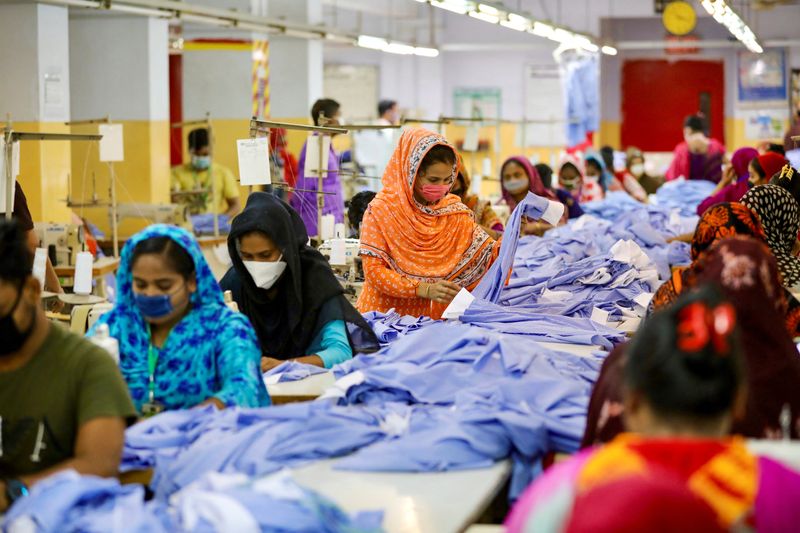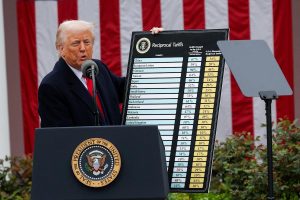
By Ruma Paul, Uditha Jayasinghe and Dhwani Pandya
DHAKA/COLOMBO/MUMBAI (Reuters) – Bangladeshi garment exporter Shahidullah Azim woke up on Thursday to the shock of U.S. President Donald Trump slapping a 37% tariff on his country’s exports, endangering an apparel hub already reeling from domestic political upheaval.
“We knew something was coming, but we never expected it to be this drastic … This is terrible for our business and for thousands of workers,” said Azim, whose clients include North American and European retailers.
Suppliers in Bangladesh’s garment industry, which counts Gap Inc and Vans parent VF Corp as clients, told Reuters they began seeking government support hours after Trump’s lightning bolt.
Some companies in the impoverished South Asian country are pressing government officials to negotiate further on tariffs with the U.S. to prevent foreign buyers bolting to save costs.
The readymade garments industry is of existential importance to Bangladesh’s economy, accounting for more than 80% of total export earnings, employing 4 million people and contributing roughly 10% to its annual GDP.
Trump’s global tariff barrage deals the latest and heaviest blow to the industry.
Last year, garment production was disrupted by violent protests that ousted Prime Minister Sheikh Hasina in August, casting doubt on the long-term potential of a market much sought after by Western fashion brands.
Azim said his company, which employs 3,200 factory workers, was bracing for order cancellations as rising costs for buyers could spell the end of Bangladesh’s competitive edge.
A representative of the Bangladesh Knitwear Manufacturers and Exporters Association, which supports more than 2,500 factories, told Reuters that it approached the government on Thursday seeking support against the tariff blow, and officials said the issue was being considered seriously.
Shafiqul Alam, the interim government’s press secretary, said in a statement that the United States was a “close friend” and Bangladesh’s largest export destination. He said Dhaka has been working with Washington on trade matters, and expects those discussions will “help address the tariff issue”.
ADVANTAGE FOR INDIA?
Bangladesh’s loss is neighbour India’s gain in some ways.
Anwar-ul-Alam Chowdhury of garment maker Evince fears India, which had been getting more queries from U.S. suppliers since last year’s political crisis in Bangladesh, will now benefit even more as it faces a lower Trump tariff of 27%.



